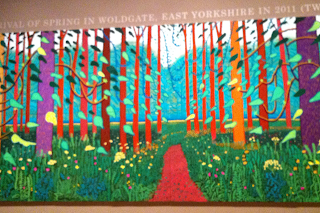My friend Violetta Gyra has developed a play that takes place inside 4 cars and takes a real roadtrip on the streets of Athens. Here is what she says about it:
ROADTRIP is a play that takes place inside 4 cars and takes a real roadtrip on the streets of Athens.
Four different stories that bring us closer.
With vehicle, a real car, an elliptical space-time, familiar to all of us, and driven by our common anxiety about tomorrow!
Impressed by this idea I have taken it and developed it into a workshop for young people. Here is my plan.In ROADTRIP we transform a simple car into a moving stage.
Put your seat belts on! Off we go!
Everything takes place on the streets. On the road. I run, you run, we run. And while everyone chooses his own path - his own trip- we all end up, by momentum to go through the same “trip”. Happiness, money, success, recognition. And our relationships? Do I have what you want? Do you have what I need? And if we both want it....can we make it? We are all on the run, constantly, our lonileness, our insanity.
We coexist, we are searching...we desire! Can we manage to move, to grow in parallel worlds?
ROADTRIP's pilot version was presented @ kinitiras studio (www.kinitirastudio.com) this past June during the in progress festival.
We are about to begin our next “trip” : follow our path... stay in touch and become our next audience!
Warm up - play a game like Penguins (contact me if you want the details)
Split into groups of 4 or 5 and place chairs in two rows like a mini car. Ask the group to choose a driver and then start to improvise.
1. You dont know each other or why you are all in the car together you have 4 minutes to get to know each other and to create a story without discussing it first. Repeat this after 4 minutes.
Have a 2 minute chat in the group about what might change and spend 15 minutes working this through.
2. Add an obstacle for example having to stop at a petrol station where something happens.
3. Add another - meeting up with one of the other groups in their car, having an argument and swapping cars. Why did you have to swap and what happens?
Rehearse and show the rest of the workshop what you have done.
You could extend this by writing a script about your journey or by inviting audience members to be in the car and finding out what would happen when you change the dynamics.
This is a simple idea which has multiple uses so thanks to Violetta for her inspiration.






